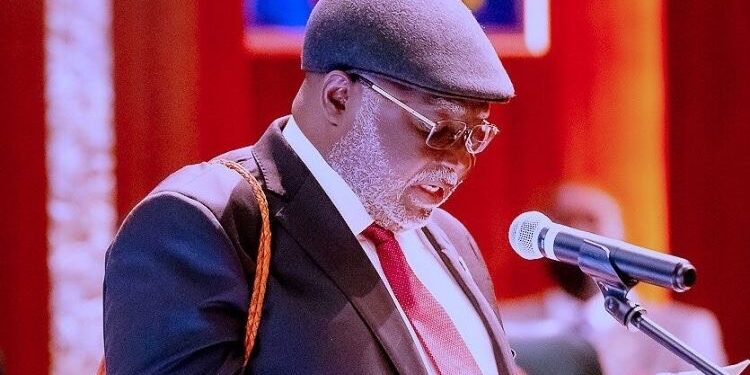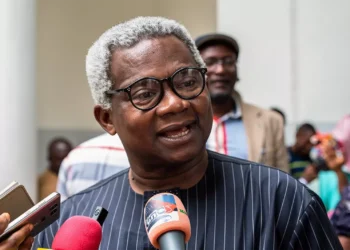The Chief Justice of Nigeria, Olukayode Ariwoola, emphasized that Nigerians would face negative repercussions if judges were not given adequate salaries, allowances, and official benefits.
Mr. Ariwoola made these comments on Monday during a public hearing discussing the proposal to increase the salaries and allowances of judicial officers in the country.
This hearing was organized by the Senate Committee on Judiciary, Human Rights, and Legal Matters.
Representing Mr. Ariwoola at the hearing was the Chief Judge of Borno, Kashim Zannah. In his speech, the CJN explicitly stated that the call for a revision of judicial officer’s salaries was in the best interest of Nigerians.”When judges are properly remunerated, they perform optimally. However, the primary concern is the welfare of the citizens, as they would bear the brunt of a weakened judiciary,” he remarked.

Mr. Ariwoola likened the plight of judges in the country to a critically ill patient in urgent need of medical attention.”Distinguished senators, in essence, the situation of judges nationwide is akin to that of a patient in critical condition in the Intensive Care Unit. Stabilizing the beam and setting a course toward recovery will ensure the patient’s well-being. Opening the door to appropriations will facilitate the patient’s transfer from the ICU to the general ward.
“In such a critical state, the focus should be on stabilizing the patient first before embarking on further treatment. Let’s ensure the patient is out of the ICU and on the road to recovery before considering additional therapies. This is the essence of our plea,” the CJN expressed. Following his statement, the CJN commended the Senate committee for hosting the hearing.” Mr. Chairman, the National Judicial Council expresses its gratitude for your unwavering commitment to removing impediments in the pursuit of justice for Nigerian citizens.”

Mr. Ariwoola also revealed that many judges in the country are experiencing significant hardship due to the current underpayment system.”There are numerous challenges that judges are facing, challenges that we have refrained from discussing to expedite the approval process. Judges nationwide endure these challenges daily, and it is prudent to address them promptly.”
He highlighted that the last review of judges’ salaries took place in 2007, nearly 17 years ago.”The last salary review for judges was conducted in 2007. For the past 17 years, judges have been receiving the same compensation despite the considerable decline in purchasing power. While other sectors have seen multiple revisions, judicial officers have been neglected,” he noted.

Mr. Ariwoola urged lawmakers to pass the bill proposing an increase in judicial officers’ salaries to fortify the Nigerian judiciary system.
During the proceedings, the Attorney-General of the Federation and Minister of Justice, Lateef Fagbemi, elaborated on the efforts to enhance judicial officers’ salaries that began during the previous administration but failed to receive approval.
Mr. Fagbemi, a Senior Advocate of Nigeria (SAN), disclosed that he recommended a 300% increase to the Bola Tinubu administration, which was subsequently approved by the president for judicial officers.”I submitted the NJC’s proposal for the president’s consideration on October 19, 2023. The very next day, the president granted an unprecedented 300% raise in the remuneration of judicial officers.
“As a result, the president instructed RMAFC to review its previous recommendation to align with the NJC’s proposal.
“This led to the current Executive Bill sent to the National Assembly to advance a crucial aspect of the president’s Renewed Hope for a Better Nigeria, aimed at enhancing judicial reforms to foster sustainable socio-economic development,” he explained.
Mr. Fagbemi urged the Senate to approve the bill swiftly.
The Minister of Finance and Coordinating Minister for the Economy, Wale Edun, commended the National Assembly for considering the bill and urged its prompt enactment for the benefit of the judiciary and all Nigerians.
From: Nwakaji Peace Martins




































